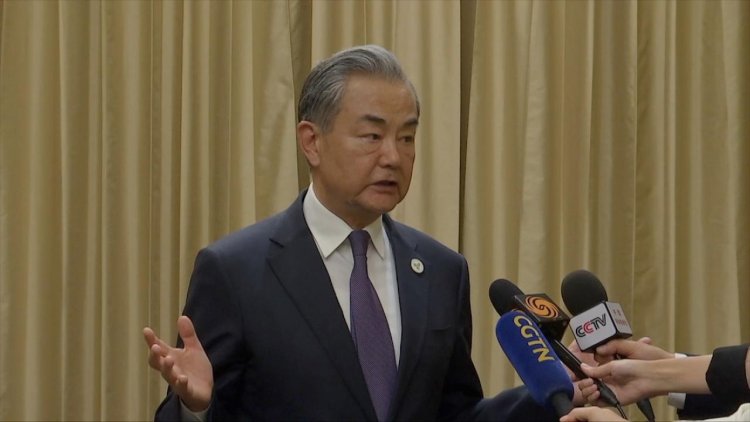Wang Yi States: President Xi's Tour of Southeast Asia Enhances Regional Connections
Chinese Foreign Minister Wang Yi stated on Friday that Chinese President Xi Jinping's five-day visit to Vietnam, Malaysia, and Cambodia conveyed a powerful message regarding China’s steadfast commitment to multilateralism and international trade regulations.

Wang, who is also a member of the Political Bureau of the Communist Party of China Central Committee, conveyed during a press briefing that Xi's travels to Vietnam, Malaysia, and Cambodia from Monday to Friday marked the first overseas visit by a Chinese head of state this year. This tour sent a clear message about China's strong commitment to multilateralism and adherence to international trade regulations.
Regarding Xi's visit to Vietnam, Wang emphasized that the strategic guidance provided by the leaders of both parties and nations stands as the greatest strength and essential political assurance for the advancement of China-Vietnam relations.
The leaders from both sides collectively affirmed their dedication to achieving the overarching goals characterized by "six mores," which will facilitate the high-quality and deeper development of comprehensive strategic cooperation, speeding up the establishment of a China-Vietnam community with a shared future that holds strategic importance, according to Wang.
During Xi's visit to Vietnam, there was an expansion and upgrade of bilateral railway cooperation, showcasing the mutual desire of both countries for collaborative development, Wang noted.
On Xi's visit to Malaysia, Wang highlighted that the most significant outcome was the elevation of China-Malaysia relations and the announcement regarding the creation of a high-level strategic China-Malaysia community with a shared future.
This achievement represents a further advancement in the trajectory of the bilateral relationship following the announcement made in 2023 about jointly building a China-Malaysia community with a shared future, Wang remarked.
A key point of this visit was the agreement between the two nations to serve as trailblazers for regional cooperation in new quality productive forces, concentrating on progressive fields such as the digital economy, green economy, and artificial intelligence, he added.
As for Xi's visit to Cambodia, Wang observed that a key moment was the joint announcement made by Xi and Cambodian Prime Minister Hun Manet regarding the elevation of the China-Cambodia relationship to the status of an all-weather China-Cambodia community with a shared future in the new era. This marks the first instance in which China has upgraded its bilateral relationship with a Southeast Asian nation to an all-weather level.
During the tour, Xi emphasized that economic globalization is beneficial for all countries and that isolation is not a viable option for any nation.
He warned that trade wars would jeopardize the international trading system, disrupt the stability of the global economic landscape, and negatively affect the legitimate interests of nations globally, particularly developing countries.
As prominent members of the Global South, China and its neighboring countries are encouraged to strengthen coordination and collaboration, unite against the trends of camp-based confrontation, jointly reject unilateralism, and oppose the "law of the jungle," where the powerful dominate the weak, instead fostering Asian values of peace, cooperation, openness, and inclusiveness. This will help protect the bright future of the Asia community, said Xi.
Xi reiterated that despite the challenges posed by rising protectionism, China remains committed to high-quality development, expanding high-standard opening-up, and sharing development opportunities with nearby countries.
He affirmed that China's vast market is always accessible to its neighbors, expressing welcome for more high-quality products from members of the Association of Southeast Asian Nations.
Allen M Lee for TROIB News
Find more stories on Business, Economy and Finance in TROIB business












